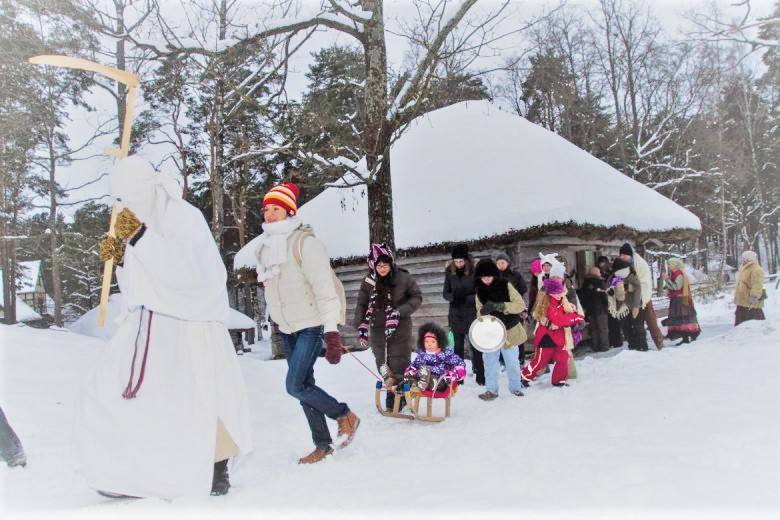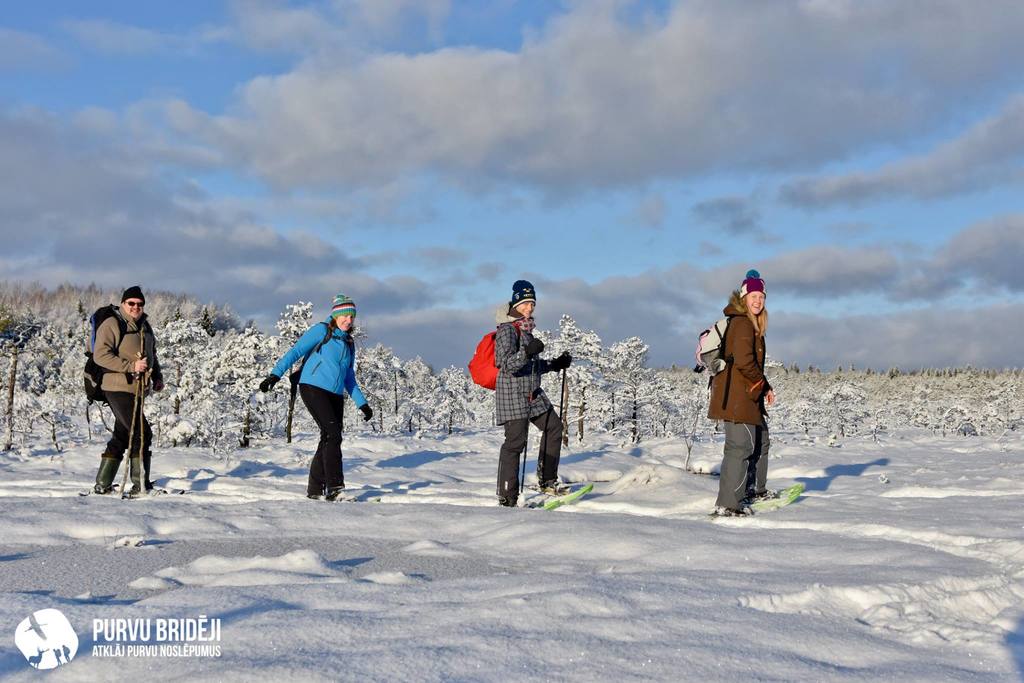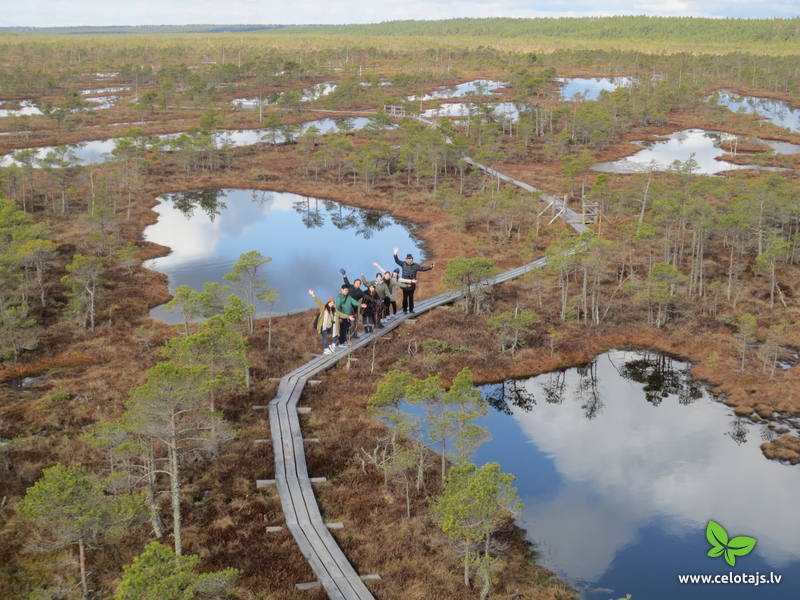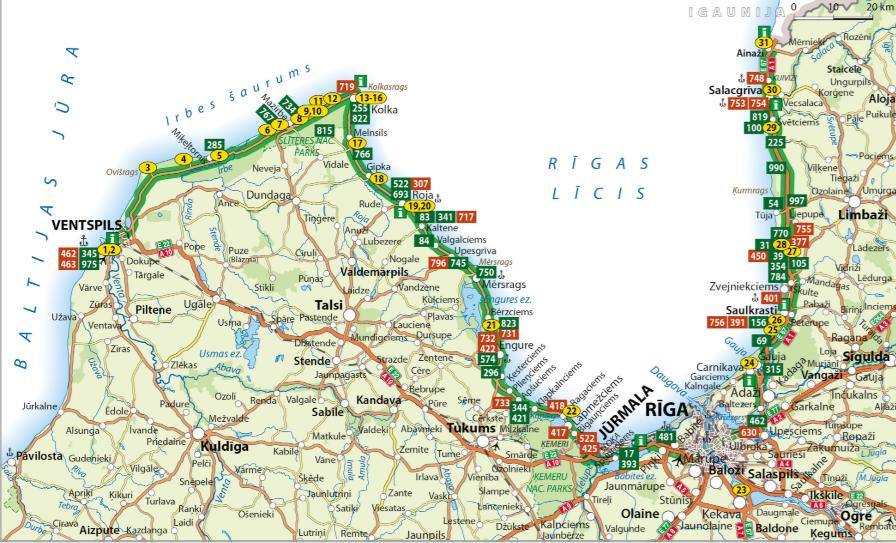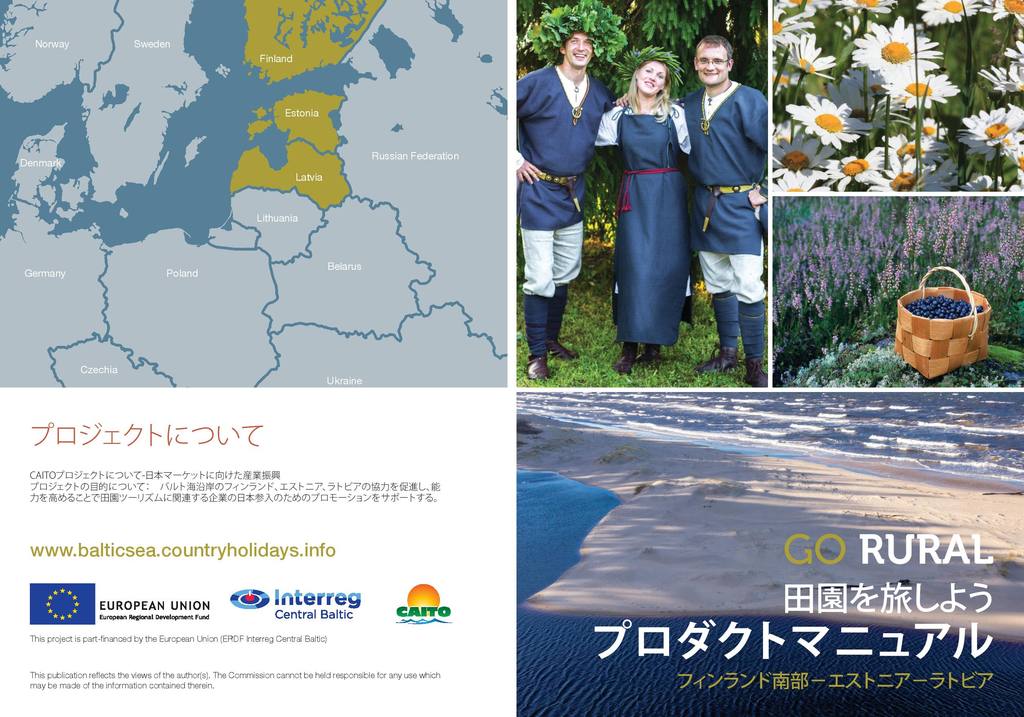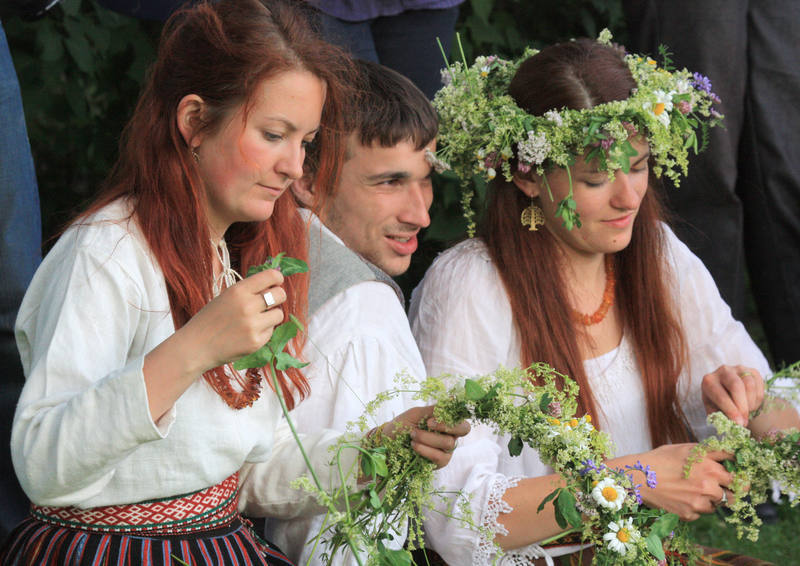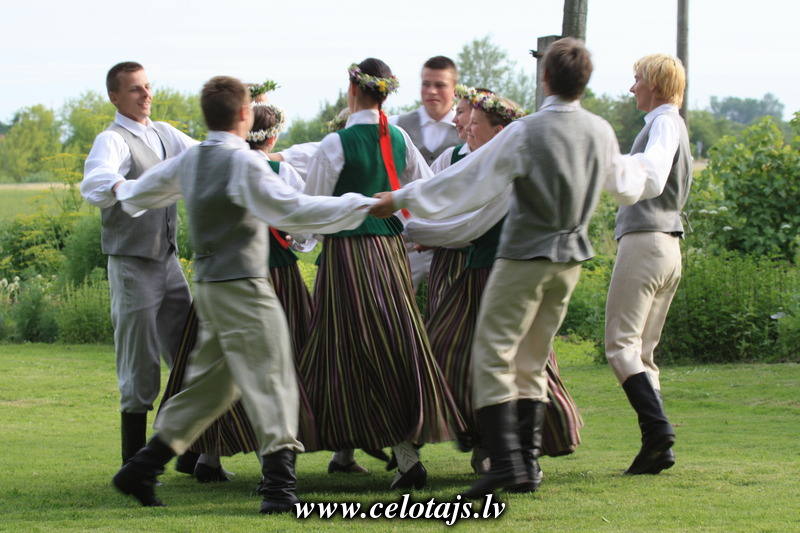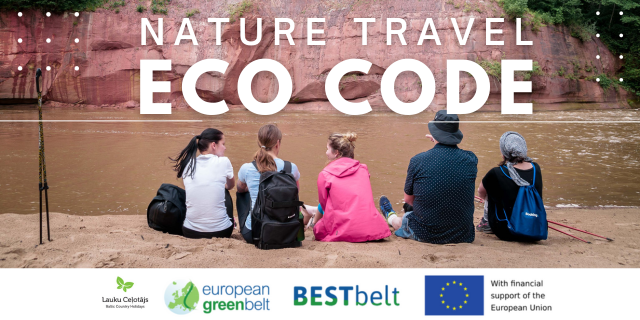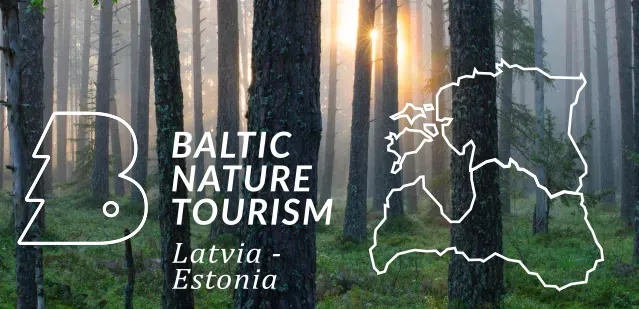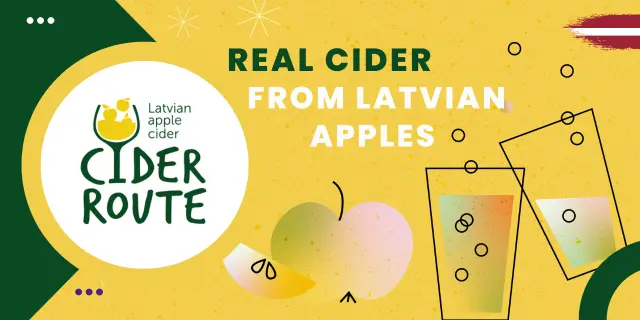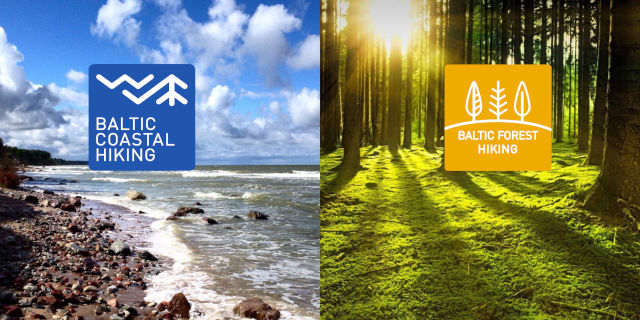Accommodation and Travel news
The Ethnographic Open-Air Museum of Latvia in Riga offer the traditional Yule log Eve on December 17. Christian and pre-Christian traditions live along well in modern Latvia. Many Latvians celebrate Winter Solstice following old Latvian traditions. The idea of this celebration is the victory of light over the darkness as days are getting longer and nights are getting shorter. As in old times, to ward off the darkness, cold, last year's hard luck, bad work and thoughts, people roll the Yule Log from one farm to another and eventually burn it. The Yule Log burning symbolizes the beginning of a new solar year and the Sun itself, which is very important for farmers. And of course, it is time for ‘happiness casting’, fortune-telling, merrymaking and games.
Winter season reveals fascinating bog landscapes when shimmering snow crystals cover trees, majestic silence rules and abundance of fresh, snow-smelling air makes one happily dizzy.
Two young Latvian nature scientists came up with the idea to offer bog tours some years ago. Since then, their bog tours have become extremely popular in all seasons as family fun, team building experience or nature lovers’ escape. The tours are available for small groups, and the participants are given special snow shoes to make walking easier on the snow. The route length in the Great Ķemeru bog is 6km, and the guided tour takes ca 3-4 hours. The guide tells about plant and animal life, about nature processes in the bog and landscape. Even when temperatures are below 0°C, people feel warm as walking takes some physical effort. The Great Ķemeru bog offers and excellent and safe opportunity to spend a day in wild nature just 45km from Riga.
Welcome to Finland, Estonia and Latvia – three neighbouring countries in the North of Europe and Scandinavia, on the shores of the Baltic Sea. This brochure will help independent travellers plan a holiday trip in the South of Finland, Estonia and Latvia beyond traditional touristic routes and to discover the real countryside.
Finns, Estonians and Latvians share similarities in mentality and way of life, but each country is still proud of its unique identity. All three countries are safe and easy to travel around – there is a good road and transport network, and there are many guest houses and country hotels, even in remote country areas, to welcome guests.
In this brochure, you will find the key information that is necessary to plan a trip – a map of the Baltic Sea countries with airports and sea ports marked, names and contacts of airlines, ferry and bus companies and car hire, and suggestions for holiday themes in the countryside. Besides, we have provided a number of web links to useful sources of more detailed information.
Let this brochure inspire you for a holiday trip!
We have come up with five new touring routes that offer colourful holiday experiences across three Baltic Sea states – Latvia, Estonia, and the South Coast region of Finland. The itineraries combine city and rural experiences offering the best highlights in each country and UNESCO heritage in all its diversity - from Art Nouveau architecture in capital cities to traditional smoke sauna in Estonian countryside. The countryside attractions are specialised in hospitality service and offer insight in small self-sustained farms, local food, arts and crafts, and nature while staying at comfortable guest houses, rural estates with gourmet restaurants or charming country homesteads that make you feel happy in simplicity and sincerity of real country life and home-made meals.
The tours can be organised on your own contacting the sites directly, or contacting Baltic Country Holidays for arrangement of services or modifications of the itineraries. Read further for itinerary descriptions and maps:
On 18th November 2018 Latvia as a country will celebrate its 100th anniversary. This anniversary is the biggest event in today’s Latvia’s history. It will be celebrated for five years (2017. – 2021.) with more than 800 different events all around Latvia and in 70 other countries, bringing in the light important events and persons that are connected to Latvia’s formation as an independent country while telling Latvia’s full story.
Dobele is a town in the cultural region Zemgale, in the central part of the country on the banks of the river Bērze. The town has long standing apple cultivation traditions. The Latvian national insitute of horticulture has its orchard there with some 600 sorts of apple trees. The orchard is named after Pēteris Upītits, a prominent Latvian horticulturist and breeder. For this reason Dobele is known as the Latvian capital of apples.
The 4th Apple festival will be held in Dobele on October 7, 2017. It promises a variety of events and activities like apple tasting, a competition to find the biggest, the most beautiful and the heaviest apple, pressing apple juice and making apple jam with produce tasting, the umurkumurs – a traditional pole-climbing contest, awarding ceremony of the Apple Order, singing and dancing performances, craft and farmers’ market, and much more fun for adults and children alike. The Dobele Crafts House will host the exhibition of apples from Pēteris Upītis orchard. The orchard will be open for excursions.
This manual is aimed to help you discover rural destinations in South of Finland, Estonia and Latvia beyond traditional touristic routes. The tours and sites in this manual are based around small-scale accommodation, open farms, local producers, living traditions and sincere people. The people here have a close relationship with itsnature and annual cycle. Each season has its own specific activities like mushrooming, berry picking, collecting herbs, ice-fishing and different agricultural jobs as well as traditional and seasonal celebrations. The countries are a haven for the tourist who loves nature, respects traditions and would like to experience the countries and their cultures more deeply.
The summer solstice in June 21-23 is one of the major Latvian summer festivities. Even convinced city people feel tempted to head out for the countryside and be a part of the overwhelming festive mood. Celebrations have to be prepared well in advance with special sort of cheese made, beer brewed, the festive place prepared, the house and yard decorated. There are ancient rituals and beliefs that have to be carried out for fertility of people and earth, to repel evil spirits. How to celebrate – this is up to you. Some will prefer sitting by the fire, eating delicious Jāņu cheese, drinking beer and singing songs with the traditional refrain Līgo, others would join the mystery and magic of ancient Midsummer rituals. To understand what this is all about read more about the Midsummer or Summer Solstice traditions and beliefs. Festive food is a significant part of the celebration with the specialty of the day – the Jāņu cheese. Get to know about its origins and meaning here, and feel tempted to enjoy Midsummer in the countryside!
It’s time to head for the flowering meadows, gather wild flowers, make flower and oak wreaths, and get ready to celebrate Jāņi or Midsummer – on of the most important Latvian national festivities. How to do it? Shall we just sit by a bonfire or join some charismatic ritual practices? Here are ideas – we have collected information on events all over Latvia, from Jūrkalne in the West to Riga and from Riga to Balvi in the East, and we recommend to celebrate Jāņi in the countryside!
Our web site features a new section dedicated to Midsummer celebration and it shortly introduces the traditions, beliefs, festive food, especially, the Jāņu cheese: http://www.celotajs.lv/lv/c/wrth/traditions/events/midsummer.
Did you know that EU is the world’s largest cheese market and there are over 240 varieties of cheese that are protected under EC schemes for protection of agricultural products and food staffs? Three quality logos attest to their specific traditions and qualities: the Protected Designation of Origin (PDO), the Protected Geographical Indication (PGI) and the Traditional Speciality Guaranteed (TSG).
Here you will find information on how 6 countries cooperate to promote cheese as a reason for travelling - going on a cheese tasting tour in home country and abroad. Touring routes, information about cheese festivals, types and sorts of cheese and cheese producers in Canary islands, Malta, Bulgaria, Slovenia, Italy and Latvia.
Find more information on Latvian „Cheese master” routes and cheese farms in our website www.celotajs.lv/lv/c/brand/cheese. Many of these participate in the Countryside Open Days event in May 27-28 this year. Check also the „Tasty cheese tour” website http://www.tastycheesetour.eu.
